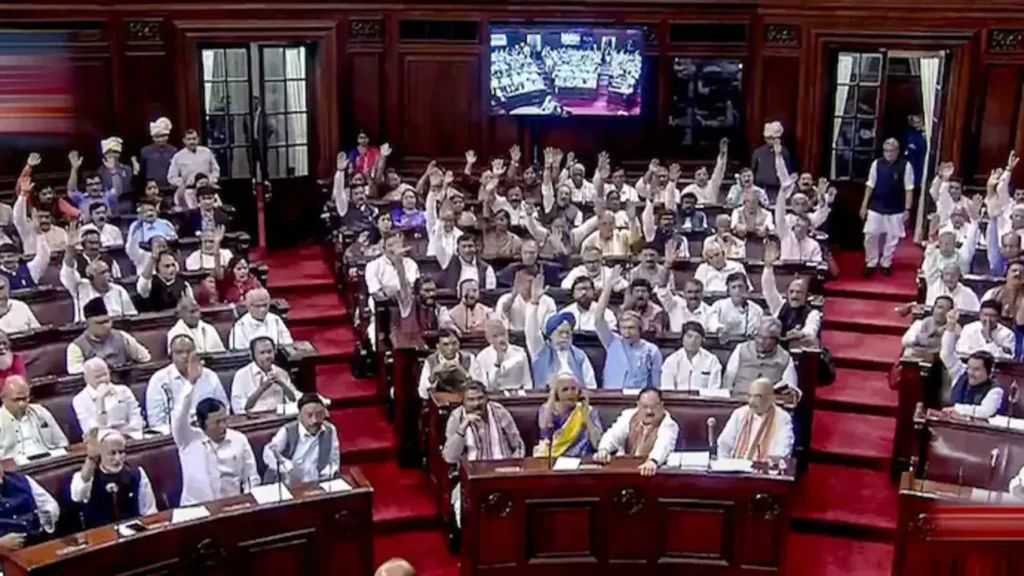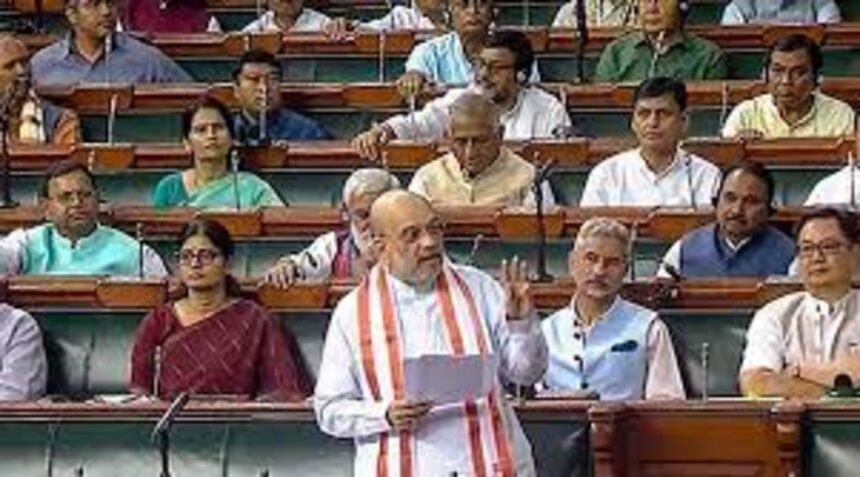August 12, 2023
New Delhi, India
Introduction
In a significant turn of events. The Delhi Services Bill has been passed into law, replacing the contentious Ordinance governing the control of services within the national capital. The passage of this bill has sparked both jubilation and criticism, reflecting the political landscape’s intricate dynamics.

The Bhartiya Janata Party (BJP) leader, Bansuri Swaraj, took the opportunity to express her views on the matter. By labeling the Aam Aadmi Party (AAP) government as ‘Jhagdalu’ (quarrelsome) and ‘Nikammi’ (inefficient). Swaraj praised the President for signing the bill into law and expressed confidence that Delhi’s administration would henceforth function by the established legal framework.
Since its inception in 2015, the AAP government has often come under fire for alleged inefficiencies and confrontational tendencies. Swaraj’s comments underscore the deep-seated political rivalry that has defined Delhi’s political landscape.
Several hurdles before passing of the bill
The Delhi Services Bill, which had encountered resistance from several opposition leaders. It grants the central government the authority over bureaucrats in the national capital. The bill’s proponents argue that this change will lead to a more streamlined and effective administration. However, critics, including the AAP, consider it undemocratic, fearing that it might undermine the authority of the Delhi government.
Opposition to the bill was particularly strong from a coalition of parties known as I.N.D.I.A. A faction led by Telangana Chief Minister K. Chandrasekhar Rao, referred to as BRS.
On the other side of the spectrum. The Biju Janata Dal (BJD) from Odisha and the YSR Congress Party from Andhra Pradesh expressed their support for the bill.
The bill was presented in the Lok Sabha by Union Home Minister Amit Shah and saw its passage on August 3. The upper house, Rajya Sabha, approved the bill on August 7 with 131 votes in favor and 102 votes against it.
In the midst of the legislative process, concerns were raised about the bill’s potential infringement on the authority of the Delhi government, as established by the Supreme Court.
Amit Shah addressed these concerns in the Rajya Sabha, emphasizing that the proposed legislation aligns with the Supreme Court’s acknowledgement of the Parliament’s right to legislate regarding the National Capital Territory of Delhi.
Conclusion
Delhi transitions into the implementation of the Delhi Services Bill. The intricate interplay between central and state authorities remains a central point of debate.
The bill’s passage marks a pivotal moment in Delhi’s governance structure. By inviting continued scrutiny and discussion on its implications for administrative efficiency, democratic principles, and the balance.






